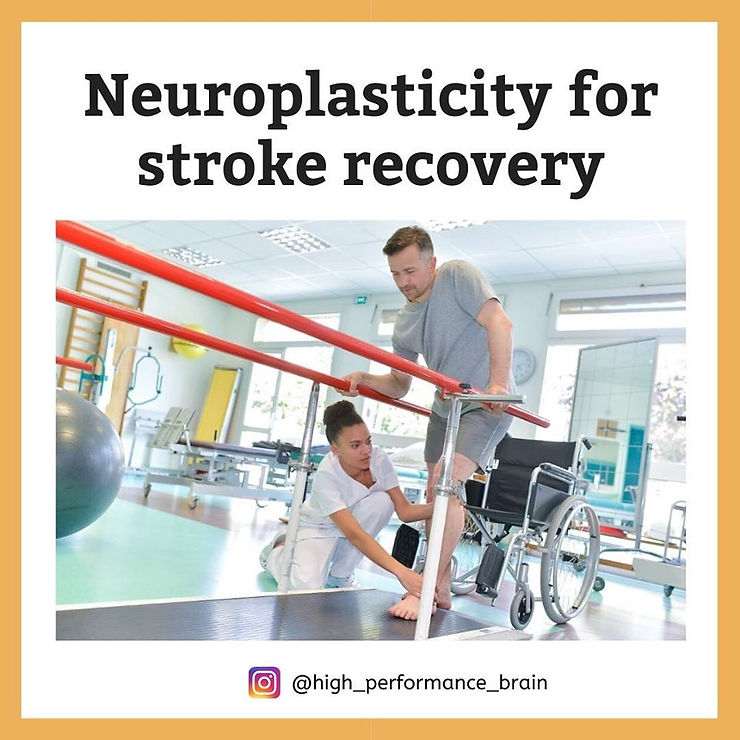Neuroplasticity for stroke recovery
- High Performance Brain

- 6 de mai. de 2020
- 1 min de leitura

Our brains are remarkably plastic, which means they are able to rewire and create new neuronal connections during our lives.
.
We know that the remaining healthy neurons in our brain have the same capacity to REWIRE AFTER STROKE.
.
This remarkable capacity means brains can be retrained after strokes to recover potentially affected functions.
.
The healthy areas surrounding the damaged brain tissue can "pick up the slack" after a stroke, and take on new functions. This cycle of repurpositioning and reorganizing is called neuroplasticity.
.
There is just one catch: It matters what kind of behavioral experience the patient repeats. Not all experience is 'perfect' for plasticity in the brain. Unfortunately, if patients have received the wrong kind of treatment following a stroke, the brain may also rewire itself in a detrimental way.
.
Health professionals who have the expertise and treat clients on the basis of the idea that the brain is continually evolving can have a significant effect on the eventual recovery.
.
👉HPB offers neuroplasticity training and brain stimulation. These kinds of consultations are a good addition to physiotherapy treatment that patients after stroke receive.
.
.
#strokerecovery#neuroplasticitytraining#neuroplasticity#recoveryafterstroke#stokesurvivor#rehabilitation#functionalmedicine#medicalneuroscience#brainstimulation#cerebralplasticity#brain#brainhealth#healthybrain#brainrecovery#recovery#strokeawareness#strokerehab#4stroke#neuroplasticidade#neuroplasticidadecerebral#brainhealthcoach#neurology#neuro#healthybrains




Comentários